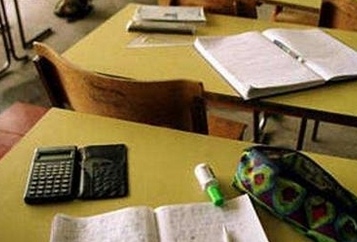Bad grades? Faulty memory could be to blame
Updated: 2008-03-03 14:16
CHICAGO -- Defects in working memory -- the brain's temporary storage bin -- may explain why one child cannot read her history book and another gets lost in algebra, new research suggests.
As many as 10 percent of school age children may suffer from poor working memory, British researchers said in a report last week, yet the problem remains rarely identified.
|
|
"You can think of working memory as a pure measure of your child's potential," Dr. Tracey Alloway of Britain's Durham University said in a telephone interview.
"Some psychologists consider working memory to be the new IQ because we find that working memory is the single most important predictor of learning," Alloway said.
Many children with poor working memory are considered lazy or dim. But Alloway said with early identification and memory training, many of these underachievers can improve.
Working memory allows people to hold and manipulate a few items in their minds, such as a telephone number. Alloway compares working memory to a box.
For adults, the basic box size is thought to be three to five items. People who have more than that on a mental grocery list are likely to forget something.
"Since there is this limit, it is important to put in the right thing. Irrelevant information will clutter up working memory," Nelson Cowan, a cognitive psychologist at the University of Missouri, said in a telephone interview.
The question many researchers are struggling with is how to help people with this problem, which appears to be closely tied with attention deficit hyperactivity disorder, or ADHD.
"In children with learning difficulties, it becomes a huge issue, especially around middle school where the demands on working memory grow dramatically," said Dr. Mel Levine, co-founder of All Kinds of Minds, a nonprofit institute in Durham, North Carolina, that studies learning differences.
LOST IN THE MIDDLE
Levine said working memory allows a reader to remember what is at the beginning of the page when reaching the end of the page. Kids with trouble with active working memory get lost in the middle.
"One little girl told me recently, 'Every time I read a sentence it erases the one that was before it,"' Levine said in a telephone interview. "That's a perfect example of an active working memory dysfunction."
Memory training may help improve working memory. "The claims that are being made are that all of the attention-related aspects of processing and working memory can be trained," Cowan said.
Alloway's tool for teachers to assess working memory capacity in children as early as age 4 has been used in 35 schools across Britain.
Levine's institute trains teachers through a program called Schools Attuned, which is working with several thousand schools across the United States, Canada and Europe.
While he is not sure working memory can be expanded, Levine said children can be taught ways to function better in school.
For the girl with the reading problem, Levine's solution was for her to own a set of school books so she could underline key points when she reads. Then she can read those points into a digital tape recorder and play them back.
"While it did not fix her problem, it prevents it from causing too much trouble," he said. "She was very interested because she was telling her mother she was the stupidest kid in her class.
"Now she's telling people, 'I've got to work on expanding my active working memory,"' he said.
|
|
|
||
|
||
|
|
|
|
